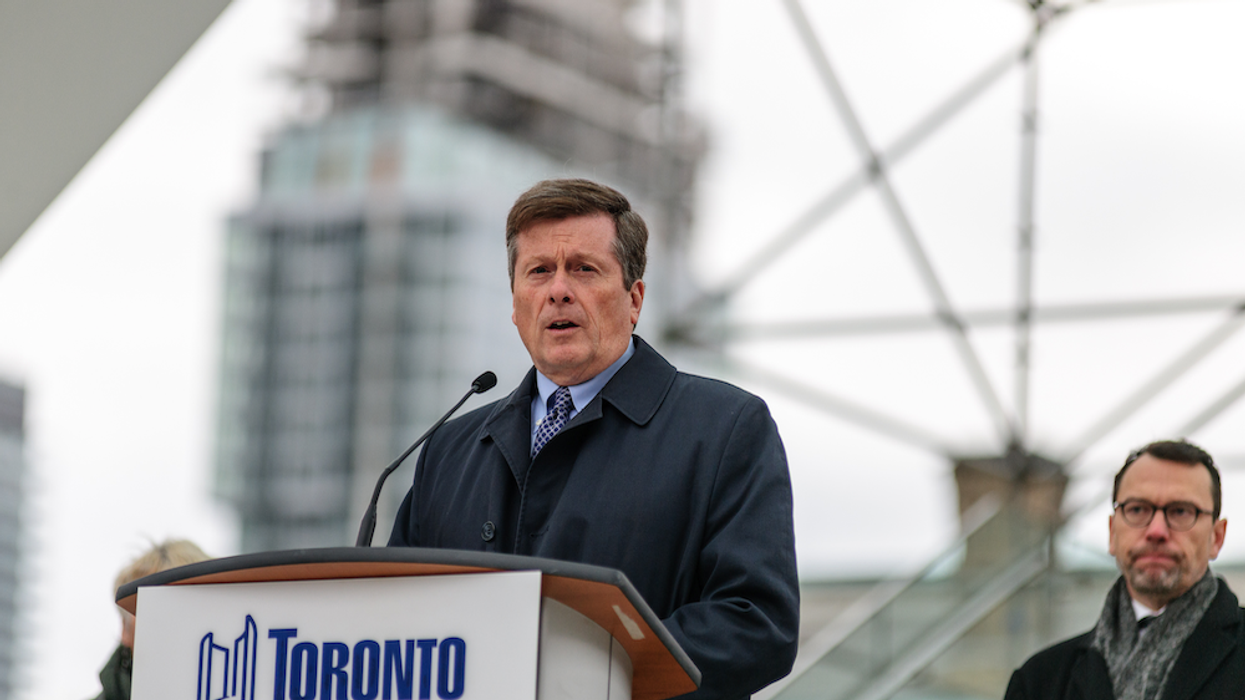Political engagement may be at an all-time low, but Toronto Mayor John Tory isn’t complaining. Just ask him: the less said, the better. Why else would he have refused all but a couple of invitations to debate his rivals?
Sadly, His Worship may have a point; during municipal elections in Toronto, silence is golden. What matters most in the peculiar logic of municipal elections is name recognition. It is the single most important factor in getting elected or, in Tory’s case, re-elected.
That’s another reason the up-coming civic vote will be one to remember: fully seven of the city’s 25 wards are without an incumbent. Ever since Ontario Premier Doug Ford exercised his constitutional power to stick it to Toronto by chopping city council in half, holding political office has lost much of its lure. A typical ward now is home to as many as 250,000 voters, which means the demands on local representatives are overwhelming.
On top of that, Tory’s main opponent, Gil Penalosa, is offering a compelling if chaotic vision of a Toronto that offers more than low taxes, crumbling infrastructure and permanent austerity. No one’s holding their breath for the Colombian-born urbanist to unseat Tory, but his presence has helped turn an otherwise dull, dreary and dispiriting foregone conclusion into something marginally more interesting. His is a vision of a city that includes reliable transit, affordable housing, clean parks and streets safe for pedestrians and cyclists. While Tory peddles the same old same old, Penalosa is the candidate of the city we dream of being.
READ: Denser Homes, No Development Charges: How a Toronto Mayoral Candidate Wants to Fix Housing
If Torontonians weren’t so allergic to change, the choice would be obvious, especially since Tory has had a full eight years to implement his agenda. But looking back, it’s clear that despite the best of intentions, he has accomplished precious little.
The much-touted SmartTrack transit plan, for instance, his main plank in the 2014 election, vanished without a trace. The province had other ideas, yet even so, the loss was barely noticed let alone lamented. From the start, Tory’s scheme lacked a sense of coherence that might have inspired support. It was -- no joke intended -- all over the map. Focused as much on the 905 as the 416, where Tory’s constituents live, SmartTrack simply added to the transit mess left by his predecessor, Rob Ford.
This time around -- the mayor’s third kick at the can – transit is a still a major concern. According to his election website, Tory is “laser focused” on “continuing to champion the historic, fully-funded $28B transit plan he was successful in getting all three levels of government to agree to.” Terrific, but there’s something disturbing about the spectacle of a mayor asking for our vote so he can continue to support provincial transit projects. Shouldn’t the chief magistrate be more than a glorified cheerleader? Besides, doesn’t Tory’s pledge implicitly acknowledge that even projects nearing completion are still at risk?
Then there’s affordable housing, which in Toronto is as hard to find as hen’s teeth. To that end, Tory has released a “five-point plan to get more houses built faster.” Included were promises to cut red tape, reduce approval time, dedicating city-owned land to housing and asking the province for “use it or lose it” regulations that would stop developers from leaving land they own to sit idle for years.
READ: Is John Tory’s “Use It or Lose It” Policy Fair in Today’s Climate?
Though few would disagree with such measures, we have heard them all before and, let’s not forget, Tory has had eight years to negotiate with Queen’s Park. His failure to act calls into question both his willingness and ability to deal with the issue.
To be fair, local government in Canada functions largely as democratic window dressing. Control rests with provinces, not cities. And with Doug Ford at the helm, Toronto can expect little. Even the premier’s pledge to give Toronto and Ottawa “strong mayor” powers comes with strings that turn city leaders into provincial puppets.
The last politicians (except Doug Ford) to tackle the thorny issue of legislative reform were Mayor David Miller and Premier Dalton McGuinty. Though their 2006 rewrite of the Toronto Act gave the city limited new taxation powers, it failed to protect the city from provincial intervention. Yet it must be said, that wasn’t always a bad thing. When then premier Bill Davis killed the Spadina Expressway in 1971 he did so over the objections of both Metropolitan Toronto Council and Toronto mayor at the time, Bill Dennison, who called the move “short-sighted and stupid.”
As often as not, Toronto clearly must be saved from itself. But before the city can properly be saved from itself, it must make those decisions by itself.





















